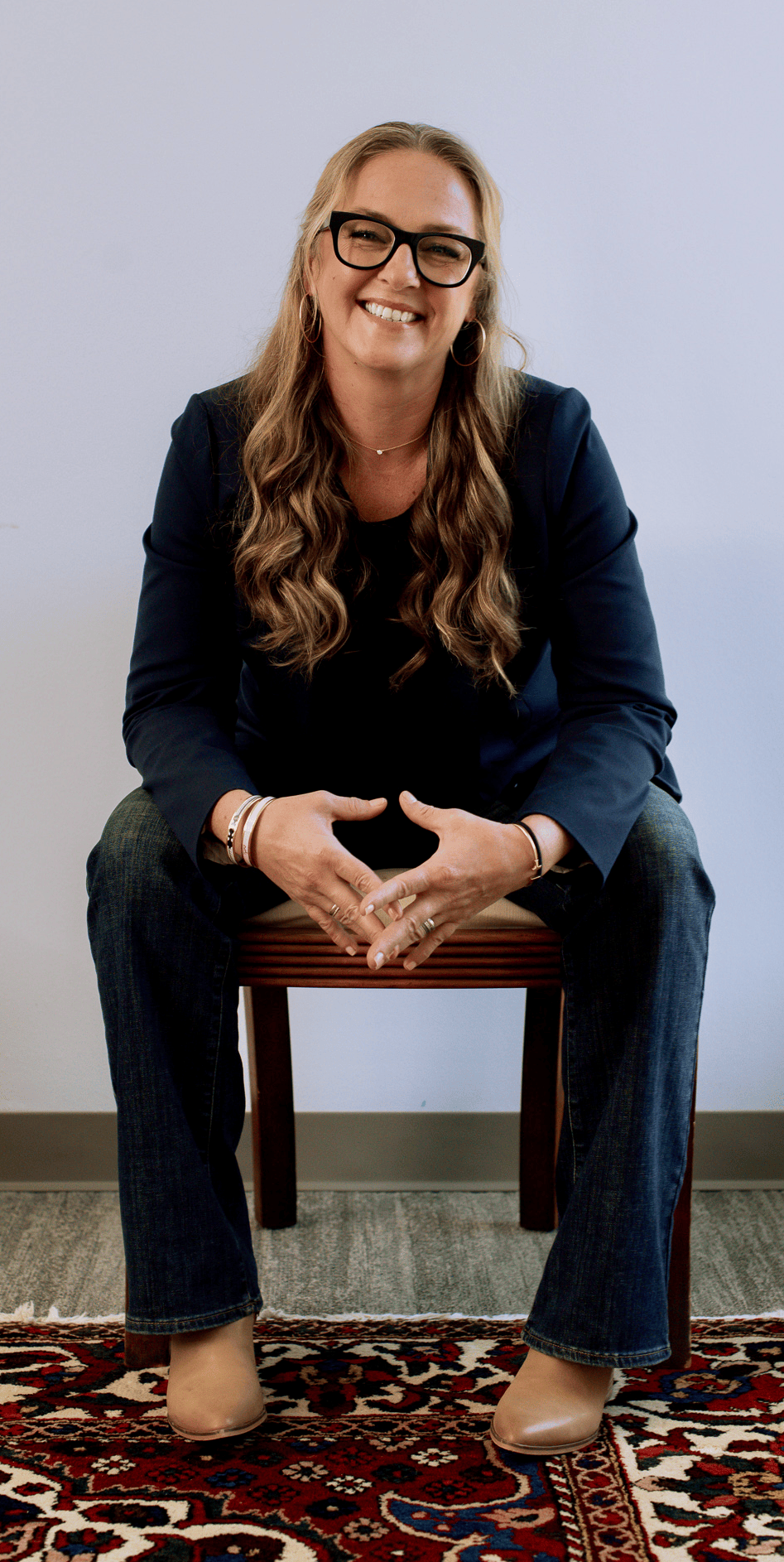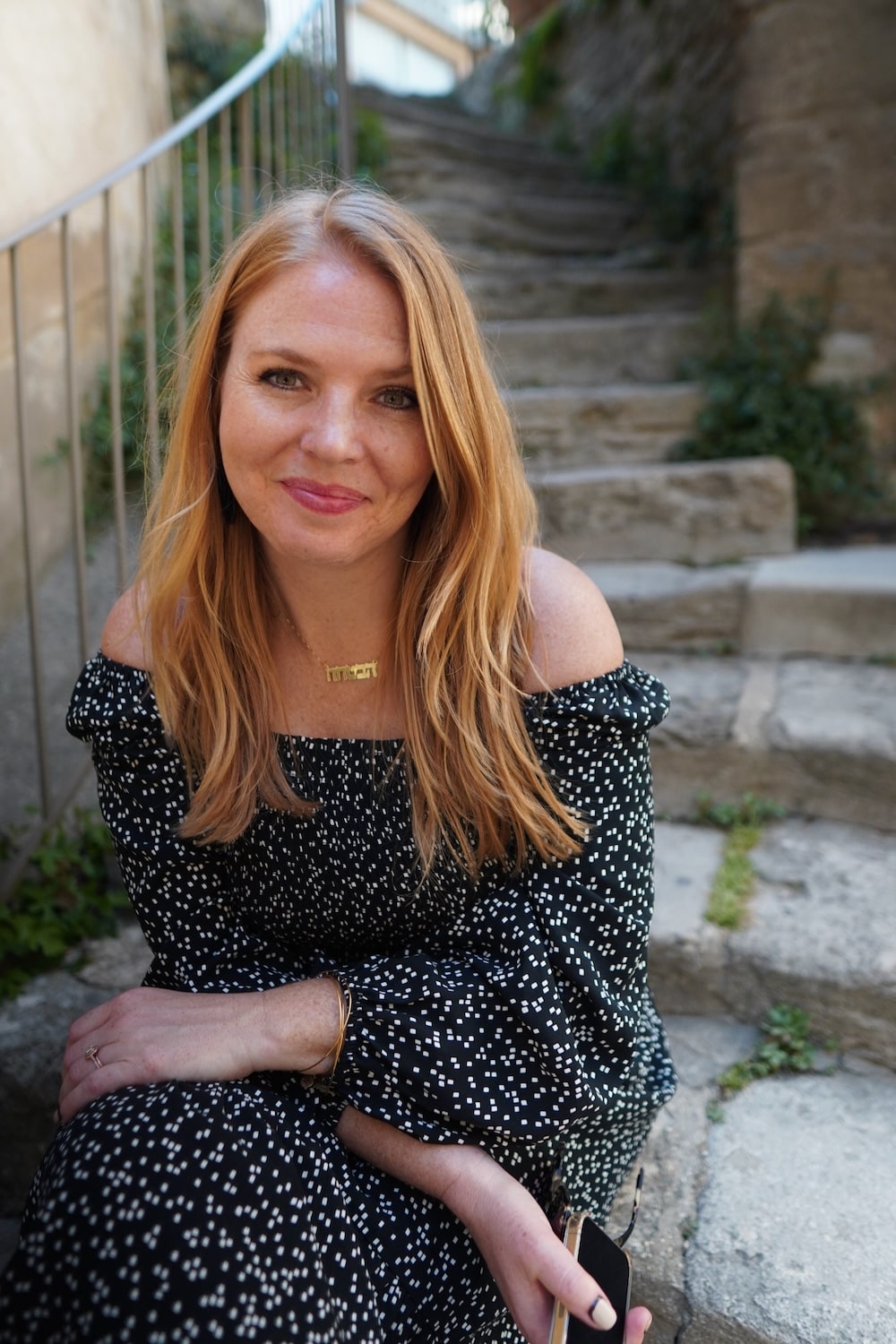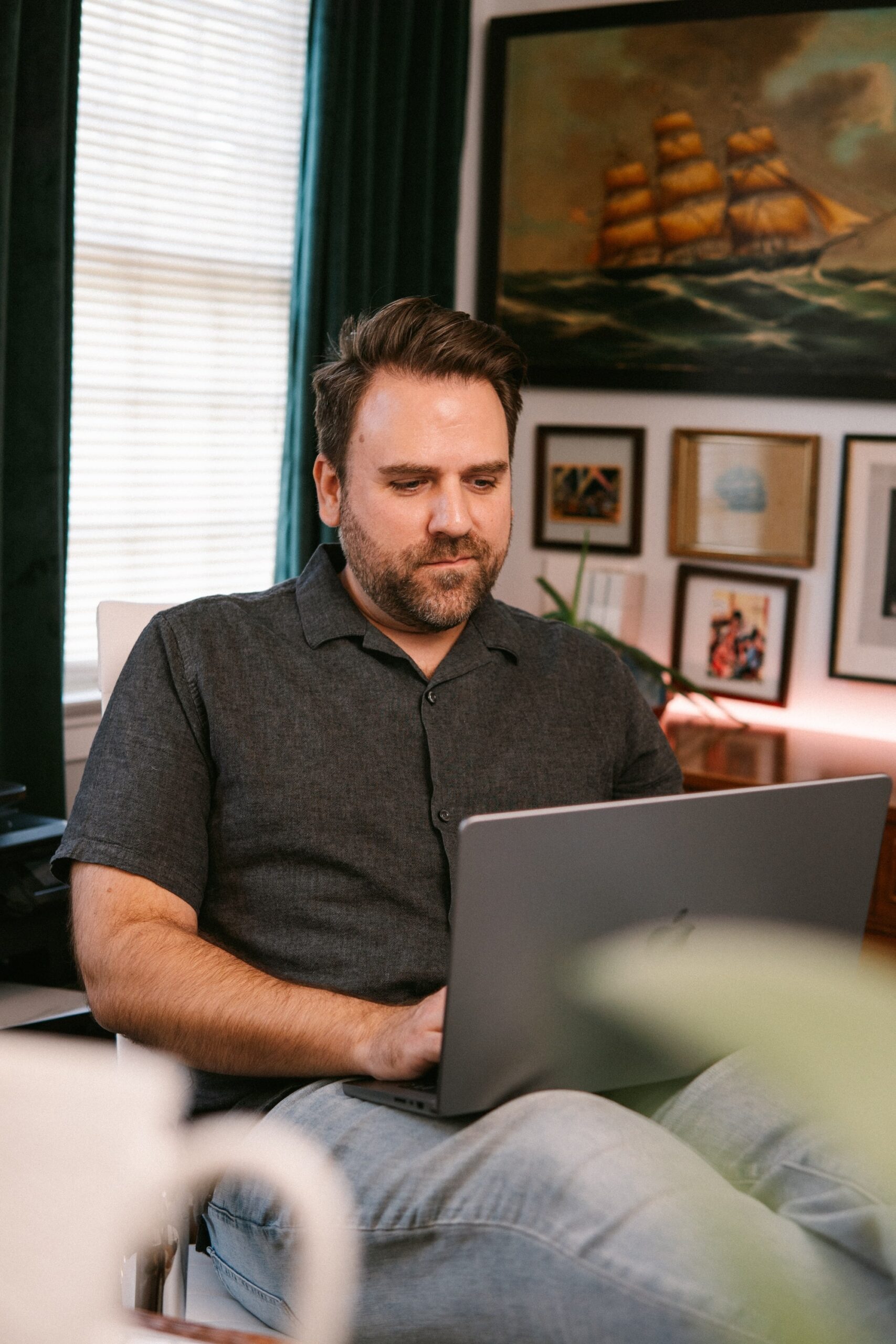
Watch on Youtube | Apple Podcast | Spotify
Perfectionism is a liar. It promises us that if we just try a little harder, do a little better, and perfect one more thing, we’ll finally feel worthy. But the truth? It keeps moving the goalposts. And by the time you reach what you thought was “perfect,” you’re already fixated on the next thing that needs fixing.
It’s the ultimate mirage—the thing you keep chasing but never actually reach. And the more you chase it, the further it seems to slip away. But what if we stopped chasing? What if we could learn to see perfectionism for what it really is: a distraction, a detour, a lie?
A Life Lived for Applause
I’ve been there. So has Emily Sutherland. In this episode of Humans, Forward!, we dive into how perfectionism worms its way into our lives, disguising itself as ambition, as discipline, as excellence. But really, it’s fear in a really good costume.
Emily knows this firsthand. As a ghostwriter, she spent years trying to control how others experienced her, all in the name of appearing perfect. It was a way to avoid criticism and rejection—a way to stay safe. But underneath it all was exhaustion, loneliness, and a whole lot of wasted time.
“I used to think that if I could just get everything right, I’d finally feel seen,” Emily said. But the more she tried to control how others perceived her, the less she felt connected to who she really was.
The Perfectionist’s Burden
For me, perfectionism showed up as a constant need to prove myself. Growing up in a conservative environment where “goodness” was everything, I learned to equate my worth with how well I could perform. There was always something outside of me that needed to approve of who I was. If I could just do everything right, maybe then I’d finally feel like enough. The problem with that? The definition of “right” kept changing, and the line for “enough” kept moving further away.
It’s a heavy burden to carry—the weight of everyone’s expectations. And the irony is, most people aren’t paying nearly as much attention to us as we think they are. But when you’re living for external validation, every sideways glance feels like a judgment, every silence feels like rejection. And the more you perform, the more you lose touch with who you really are.
What People Don’t See
Emily and I both grew up as pastor’s kids in religious environments that held us to a different standard. For her, perfectionism was a way to protect her family’s reputation. For me, it was a way to avoid the sting of judgment. We both learned that our actions didn’t just reflect on us—they reflected on everyone around us. And that’s a heavy burden for a kid to carry.
When you’re young and trying to protect everyone around you by being perfect, you don’t realize the weight of that burden. You’re just doing what you think you’re supposed to do. You’re performing. You’re masking. You’re holding your breath, hoping that no one will see through the cracks. But as you grow up, that weight doesn’t go away—it just gets heavier. And before you know it, you’re exhausted from carrying around everyone’s expectations.
Hiding Neurodivergence
Emily talks about how that need for perfection led her to constantly mask her neurodivergence. She spent years hiding how hard certain tasks were for her, working through the night to make it look effortless. The desperation to keep up appearances while feeling like you’re drowning behind the scenes is a kind of exhaustion that people don’t often talk about.
“I didn’t want people to know how long and how hard and how many nights I worked through the night to get something to the point where I felt like it was ready,” she said. “And I felt that. The desperation to keep up appearances while feeling like you’re drowning behind the scenes is a kind of exhaustion that people don’t often talk about.”
The Hidden Cost of Perfectionism
What people don’t see is how much work goes into maintaining that illusion of perfection. The invisible hours spent obsessing over every word, every email, every social media post. The replays of conversations, second-guessing what was said, and how it was said. The constant scanning of other people’s faces for signs of approval or rejection. It’s exhausting, and yet, so many of us keep doing it.
But the cost isn’t just internal. It’s relational. It keeps us from being present because we’re always anticipating the next thing to fix, the next thing to perfect. And the irony is, no one else is keeping score as closely as we are.
The Myth of Perfection as a Strength
Emily and I talked about the myth that perfectionism is a strength. That lie that tells us if we just work harder, plan better, and do more, we’ll finally be enough. But what Emily and I both realized is that perfectionism doesn’t actually protect you. It isolates you. It keeps you from being seen, from connecting, from being human.
The Danger of Disguise
Perfectionism also isolates us from ourselves. Emily shared how her journey to unravel perfectionism involved not just letting go of unrealistic expectations, but also learning to see herself differently. She started to reframe her inner dialogue, challenging the thoughts that told her she was only as good as her last project. It’s a practice, she said, to remind herself that her worth isn’t tied to her work. But that practice takes time, and it takes intention.
Finding Your Own Way
And that’s a practice for me too. I’m still learning how to lower the bar, how to do things imperfectly, how to be okay with just showing up as I am. Because, as Emily reminded me, good enough really is great. And that gets to be enough.
Letting Go of Perfect
Maybe you are too. Maybe you’ve spent years trying to perfect your work, your life, yourself—hoping that if you just get it right, the world will finally give you what you need. But what if what you need has been there all along?
So the next time perfectionism whispers that you’re not enough, ask yourself this: What am I really afraid of? What’s the worst that could happen if I let this be good enough? And if you can answer those questions honestly, you might just find that the fear of not being perfect isn’t as big as it once seemed.
Final Thoughts
Perfectionism is a thief. It steals our time, our energy, our joy. It convinces us that we have to keep hustling, keep proving, keep performing. But what if we just… didn’t? What if we decided to let ourselves off the hook? What if we chose to believe that good enough is, in fact, more than enough?
Because the truth is, life isn’t a performance. It’s a practice. And every day, we get to decide whether we’re going to keep chasing perfect or start choosing real. And if you ask me, choosing real is the bravest—and most liberating—thing we can do.
Support the Show*
Check out ClickUp*–the everything app, for work: https://www.gentrylusby.com/clickup
Get started with Kit*–the email-first operating system for serious creators and entrepreneurs: https://www.gentrylusby.com/kit
(*Affiliate links)
How to Stop Perfectionism from Controlling Your Life with Emily Sutherland
Whether through speaking, storytelling, or coaching, I share real experiences, learned and curated wisdom, and practical tools to help you (and humanity) move forward.
I'm a motivational speaker, talk show host, writer, and creative. And I'm a endlessly curious human trying to figure out, well… humans. What makes us successful, fulfilled, disappointed, or stuck? How do our experiences shape us? And more importantly—how do we human better?
If we haven’t met yet, I’m Gentry Lusby.
meet
the
blogger




